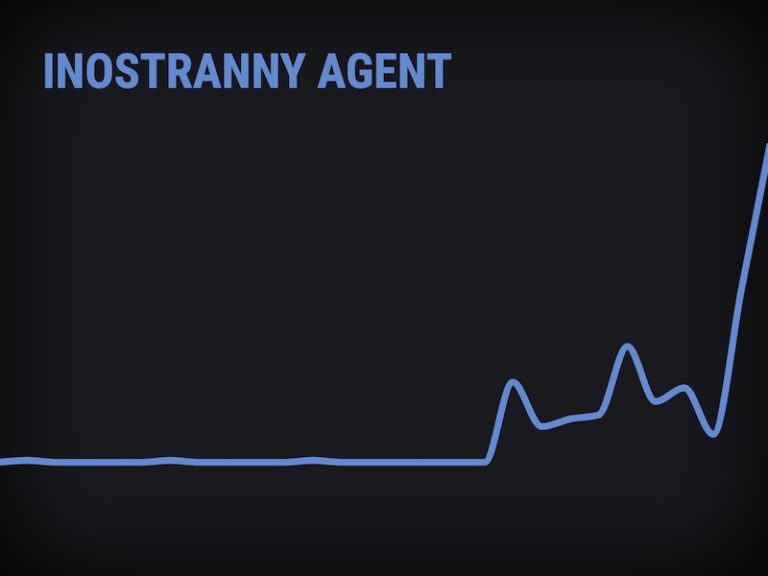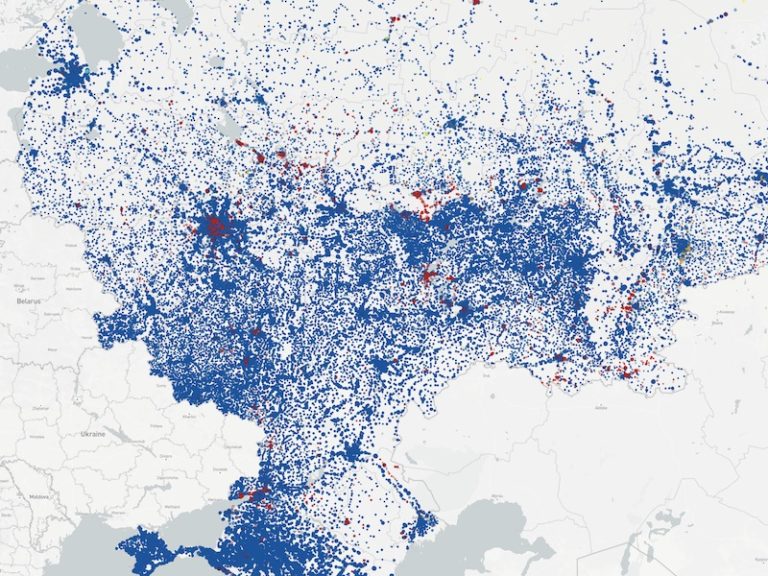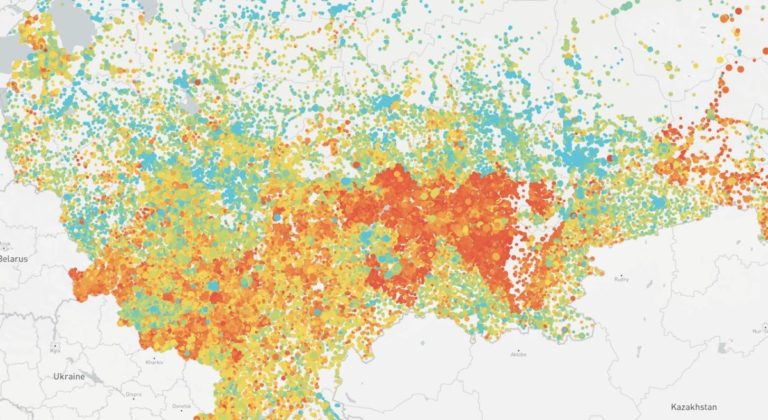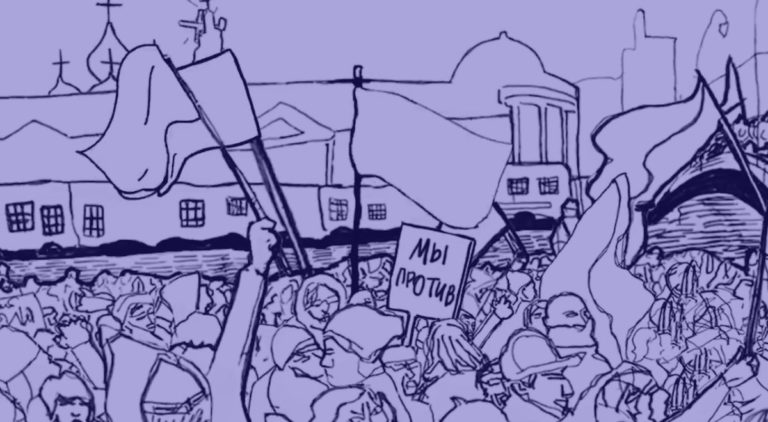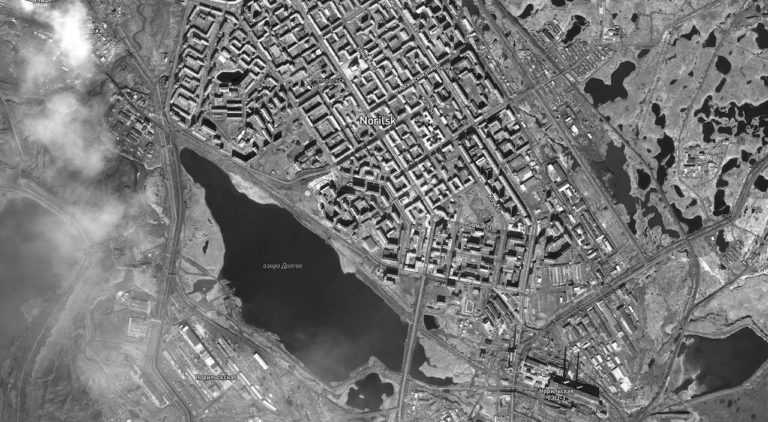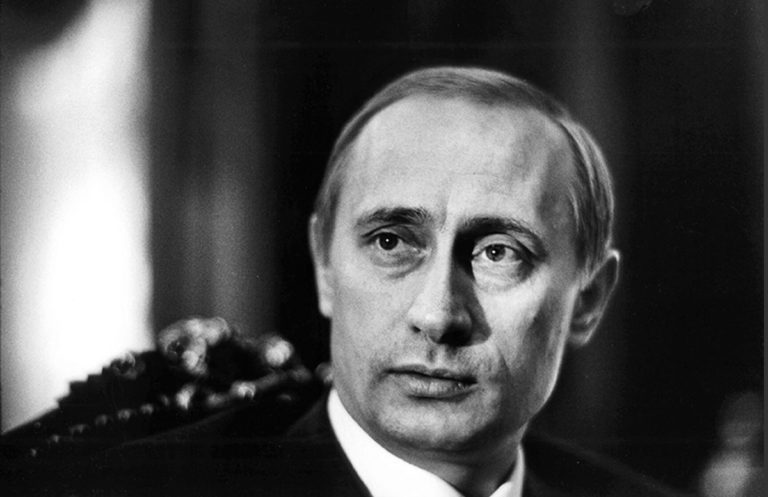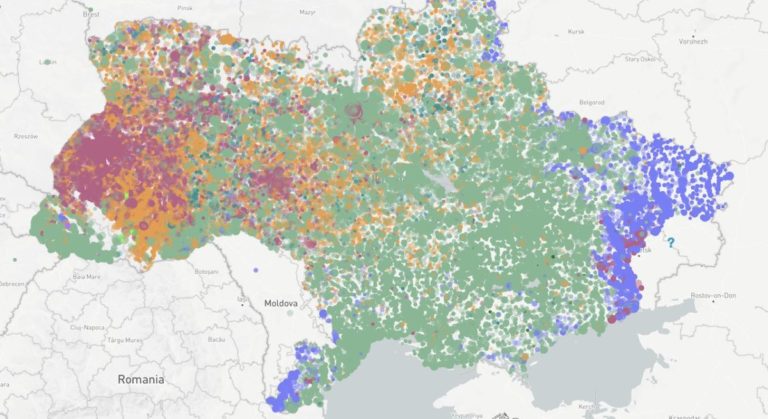The close-reading of a translation is not often done with journalistic translations. Together with her students, Anna Shibarova did just that – and her metatext opens up new layers of a text and its translation.
The workshop: How does dekoder translate?
In the summer semester of 2020, the Institute of Slavic Philology at Ludwig-Maximilians-Universität in Munich hosted a student workshop on journalistic translation. As a lecturer at the institute, I led the workshop. There, the students and I took a close look at dekoder’s translations to gain insight into what goes on at its “laboratory”.
How does dekoder translate? How do they find a balance between naturalisation and defamiliarisation in each specific case? In the words of the classic quotation, “The translator either leaves the author in peace, as much as possible, and moves the reader toward him; or he leaves the reader in peace, as much as possible, and moves the writer toward him” (Schleiermacher, 1813, as translated by Lefevere, 1977). What kind of movements does dekoder have to accomplish to get their target text on the right track? What gets shifted around during the translation and editorial revision of the target text? These were the questions we set out to answer.
The first text we read, and the focus of this article, was Die Geister der Vergangenheit (The ghosts of the past). The text appeared as an abridged German-language translation by Jennie Seitz on dekoder on 6 July 2017. The original Russian piece, Delo Khottabycha (The Khottabych affair) by Shura Burtin (Expert, 26 May 2017) meant a lot to me, and I knew it well.
The choice of text
I first read the piece on the night train from Saint Petersburg to Murmansk in August 2017. That year, the Saint Petersburg branch of the NGO Memorial had organised the annual event to commemorate the victims of the Great Terror. We were on our way to Sandarmokh. I had not known about historian Yuri Dmitriev, the man who discovered this execution ground in the Karelian forest, until I read Burtin’s story. It left me shaken.
Shura Burtin’s reportage was the first journalistic account examining the Dmitriev affair. When we arrived at Sandarmokh and took part in the memorial event on August 5, it was already too late for us to meet Yuri Dmitriev in person. Dmitriev, who was facing allegations of child pornography, had been in detention since 2016.
Effect
“What a sad + powerful text. There were passages that made my blood run cold,” one student wrote to me after reading Jennie Seitz’s translation.
Structure
The long-read unfolds in 14 sections, moving swiftly from one to the next. The first section sketches Dmitriev’s character. The German version paraphrases the original Russian heading Ershistyi (bristly/prickly): “Abrasive, emotional person with a difficult character”. In the subsequent sections, Burtin tells the story of how Dmitriev came to find his mission in life – giving a proper burial to the unburied victims of the Terror –, and how he conducted archival research to supplement his searches in the woods.
Then the author takes us back to 1937, reconstructing the crimes committed by the NKVD in the Karelian forests with grim precision. There follows a change of scene, and the story returns to the present day, focussing on Dmitriev’s family and Natasha, his adopted daughter. Then, at last, the dramatic climax: Dmitriev is arrested, Natasha is taken away from her family. The ghosts of the past have arrived here in the present. The last section is titled Ten (“Shadow”).
The text is structured through the interweaving of past and present. It is so well put together that removing one section would cause the entire edifice to collapse. So although the German version is abridged, the overall structure is kept intact for dekoder readers.
Title
The article’s original title Delo Khottabycha (The Khottabych affair) plays with the name recognition effect: every Russian reader remembers the genie from the classic movie Starik Khottabych (1958; released with English subtitles as The Flying Carpet in 1960). An idiosyncratic wizard with a long grey beard, Khottabych is eccentric, obstinate and likeable. He inspired the eponymous nickname given to Dmitriev by colleagues and friends.
Here, dekoder takes a step towards its readership, changing the title. German readers can get more out of the expression Die Geister der Vergangenheit (the ghosts of the past). This change also shifts the emphasis. The main character takes a step back, and a signal is sent: this is about Russia’s unexamined history, about ghosts not laid to rest.
Introduction
The title is followed by a short, first-person text in the original Russian piece:
1 iiunia v Petrozavodske nachinaetsia sud nad odnim iz samykh udivitelnykh liudei, kotorye mne izvestny, — kraevedom Iuriem Dmitrievym. Chelovekom, kotoryi posviatil zhizn zabote o mertvetsakh. Ego obviniaiut ne to v izgotovlenii detskoi pornografii, ne to v khranenii oruzhiia. No delo eto nachalos eshche 80 let nazad — v lesu, v okrestnostiakh 1-go shliuza Belomorkanala.
“On June 1, a Petrozavodsk court will open the trial of one of the most incredible people I know: the local historian Yuri Dmitriev. A man who has devoted his life to caring for the dead. He is accused of the production of child pornography or unlawful possession of a weapon. But this case began 80 years ago – in the woods, at a place near lock number 1 of the White Sea Canal.”
This is a classic teaser, intended to pique readers’ interest. In the choice between suspense and information, dekoder opts for the latter. The teaser is replaced by what dekoder calls a “lead text”, an informative introduction. It is longer (243 words compared to the 53-word teaser), furnished with links and a Gnose [a detailed accompanying text on a specific topic, here, the Terror and its place in the Russian culture of remembrance], and provides a compact summary of the key background information. It also touches on the use of the name Khottabych, explaining the reference.
Memorialets
Right at the start, an unusual word appears in the Russian text: memorialets .
“I first heard about Dmitriev this past winter, after his arrest. Friends told me the strange story of a Memorial worker from Karelia, who had been arrested on child pornography charges.“
Memorialets is not a word that is universally understood, but the informed reader gets it immediately. Coming into use in the late 1980s, when the NGO Memorial was founded, memorialets means something like “Memorial worker/person from Memorial”. In the broader meaning, memorialtsy can also include activists and like-minded members of the wider community around the NGO. The word has become more common in recent years, as the organisation has been both subject to increasing state pressure and gained greater visibility. Sometimes there are emotions projected onto the word: a title of honour for some, it is more of an insult for others.
The translation chosen is straightforward: Memorial-Mitarbeiter, someone who works with/for Memorial. Though dekoder readers may not pick up any subtle undertones, they do get an accompanying text on the organisation Memorial and a blurb on Karelia. Thus, the text does not read in a linear fashion here. By using this insider word, the Russian text implicitly questions its readers: Did you get it straight away? Why this word? What associations does it call up for you? The code-breaking dekoder is aimed at readers with no prior knowledge, a kind of tabula rasa. Rather than sounding out its readers here, dekoder’s version provides them with explanations.
Narrative tone
In the next sentence, the narrative lens zooms in on the portrait of Yuri Dmitriev:
Ia zalez v set i uvidel fotki khudogo, borodatogo muzhika s sedymi patlami s tiazhelym vzgliadom.
“I got home, searched online and saw pictures of a skinny, bearded man with scraggly grey hair and a grave stare.“
The Russian text sounds rough, with the series of colloquial terms creating a direct, gritty tone. We understand each other, my reader and I, the tone announces. We don’t need elegant words. And this is how the protagonist, Yuri Dmitriev, talks too.
The sentence, despite the scraggly hair, comes across as somewhat more groomed.
Like pathos, casual, slangy language does not lend itself to a direct, word-for-word transfer from one language to another. Seitz uses considerable finesse in constructing the German sentence here. She keeps the scraggly hair (Zottel), but uses a neutral term, Mann, to translate the less refined “muzhik” (bloke, guy). Despite the scraggly hair, and although it is just as sparse, the translated sentence still comes across as somewhat more groomed than the original. The slight smoothing subtly changes the tone, and it distances the reader.
The material omitted
The German version is about 2000 words shorter than the original Russian. There is a logic to the omissions.
Burtin’s piece is not only about his protagonist, he is also writing about his own confrontation with the subject matter, which he initially found difficult to approach:
Obvinenie zvuchalo tak, chto slozhno bylo chto-to ob etom dumat. S odnoi storony, trudno ozhidat ot sotrudnika «Memoriala» podobnoi ekzotiki. S drugoi — net dyma bez ognia: ne mogli zhe sledovateli prosto vse vydumat?
“It was difficult to know what to think, the charge sounding as it did. On the one hand, it is hard to imagine something so bizarre from a Memorial worker. On the other, no smoke without a fire: surely the investigators could not have made the whole thing up!“
In dekoder’s version, the passage ends there. But in the original, it continues: Burtin talks about his early research online and a television programme defaming Memorial, calling it not just a gathering of foreign agents, but a nest of paedo-monsters. ([N]e prosto sborishche inostrannykh agentov, a gnezdo upyrei-pedofilov ). The Russian text continues in that vein for a while.
This passage does not appear in the translation: apparently, dekoder does not want to inflict the insinuating language of the propaganda on its readers. The translation also omits Burtin description of how shaken Dmitriev’s colleagues seemed at first. And dekoder readers never learn that the piece was almost never written at all:
Ot slov «detskaia pornografiia» prosto khotelos otstranitsia i zabyt. I ia zabyl. A potom v kakoi-to moment podumal, chto vse ravno v etoi strannoi istorii khochetsia razobratsia — chto by tam ni vyiasnilos.
“I simply wanted to distance myself from the words “child pornography” and forget them. And I did forget. But at some point I thought: I want to get to the bottom of this strange story anyway, whatever it turns out to be.“
Schura Burtin sees himself as a journalist and a writer; dekoder’s priority is journalism. Little wonder then, that these first-person passages are sometimes omitted in the German text. Digressions, psychological details, and comprehensive descriptions, including some garish details – all of these have been shortened.
Abridged though it is and shifted toward dekoder’s German-speaking readership, the translated version still speaks to us in the author’s unmistakable voice. The distinctiveness of Burtin’s approach – he once described his format as “a subjective sincere text on a current topic” in an interview – lives on in dekoder’s version. “What a sad + powerful text”.
Postscript following the start of the war
War and terror are shaking up our vocabulary. Since February 24, we’ve been reading and hearing differently. The word memorialets now carries an even stronger sense of resistance, and I am wondering: does the word have a future in Russian? Might the word Memorialets establish itself in German? Will it find its way into Duden, the standard German dictionary? I should like this noble word to have a place there.
On 5 August 2022, the annual event in Sandarmokh commemorating the victims of the Great Terror was held once again. People, some delegates from other countries, organised themselves through social networks and made the trip to Sandarmokh. Those who couldn’t come sent a video showing them reading out the names of victims, in accordance with tradition.
Memorialets Yuri Dmitriev was able to send greetings to the participants from his penal colony in Mordovia.
Text excerpts translated from the German by Alison Borrowman.





